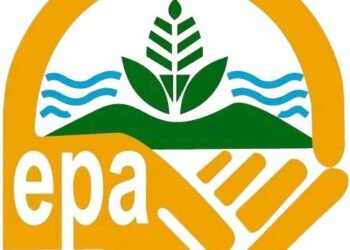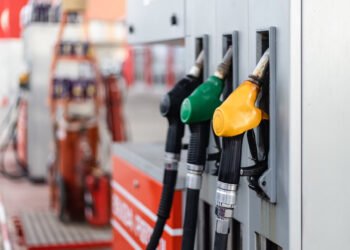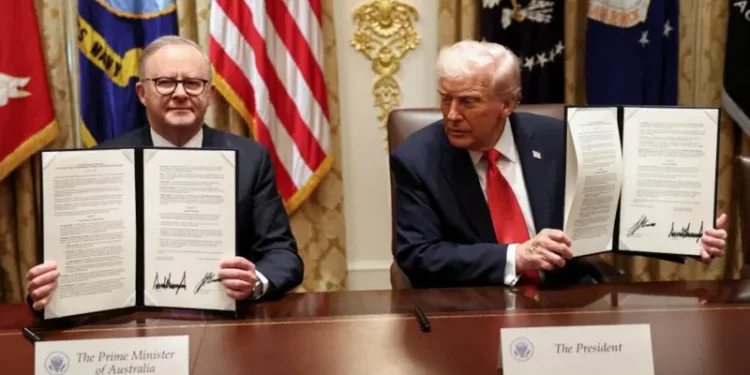Ghana’s declining oil revenues have once again come under scrutiny as Financial Economist and Head of Local Government Services, Professor Lord Mensah, blames years of fiscal inconsistency and weak investment policies for the sector’s underperformance.
He cautions that the country is now “paying for its past policy indecisions,” a situation that threatens fiscal stability and long-term growth.
Speaking in an interview, Prof. Mensah explained that the country’s oil receipts which contributed about 9.4% of total revenue and grants in 2023 have fallen due to reduced investment activity and unpredictable tax policies that have discouraged investors.
“If we are losing 10% of total revenue that comes from the oil sector, it’s quite tough, especially when the economy is overly concentrated on gold, oil, and cocoa.
“Once one of them gets hit, the economy suffers.”
Professor Lord Mensah, Financial Economist and Head of Local Government Services

He attributed much of the problem to Ghana’s unpredictable fiscal environment, particularly the inconsistent adjustment of corporate tax rates and unstable petroleum fiscal terms that have weakened investor confidence.
“There was a time we kept changing corporate taxes from 30% to 25% and back again during mid-year reviews.
“These tax inconsistencies have a way of scaring investors, and now the country is paying for it.”
Professor Lord Mensah, Financial Economist and Head of Local Government Services
Policy Uncertainty Weakening Investor Confidence

According to Prof. Mensah, Ghana’s offshore oil operations require long-term capital commitments, which demand a clear and stable regulatory environment.
However, the sector’s unpredictability, combined with limited exploration in recent years, has left the country’s output stagnant despite possessing substantial untapped reserves.
He warned that Ghana’s dependence on a few key commodities namely crude oil, gold, and cocoa has made the economy highly vulnerable to global price swings, with each sector’s downturn significantly impacting national revenue.
Despite the challenges, Prof. Mensah expressed optimism about the country’s economic direction, citing the government’s recent diversification initiatives such as the establishment of the Ghana Gold Board (GoldBod) and policies aimed at broadening revenue sources beyond hydrocarbons.
He stressed that while falling oil prices might negatively affect government revenue, they could also deliver short-term relief to households through lower fuel prices.
“When global oil prices dip, even though the state loses revenue, households benefit through reduced fuel costs, which increases disposable income.”
Professor Lord Mensah, Financial Economist and Head of Local Government Services
Prof. Mensah further advised that petroleum revenues should be strategically channelled into projects with immediate social and economic returns, such as infrastructure and road development.
“If we invest in roads, it reduces travel time, fuel consumption, and overall demand for petroleum products.
“That’s a direct economic and social benefit.”
Professor Lord Mensah, Financial Economist and Head of Local Government Services
Oil Revenue Should Fund Economic Diversification

Beyond infrastructure, Prof. Mensah emphasised the importance of using petroleum proceeds to support agriculture and export-oriented industries, arguing that Ghana’s heavy reliance on oil income leaves it exposed to external shocks.
“We should use oil proceeds to promote diversification, investing in agriculture and export sectors that can reduce our reliance on oil.
“Ghana doesn’t control global crude prices, so the smarter path is to build resilience.”
Professor Lord Mensah, Financial Economist and Head of Local Government Services
He also warned that global energy investment trends are rapidly shifting away from fossil fuels toward renewable and climate-friendly alternatives, urging Ghana to align with this global transition.
His comments come in the wake of a new report by the Public Interest and Accountability Committee (PIAC), which revealed a 56% year-on-year decline in Ghana’s petroleum revenues during the first half of 2025.
The report detailed that of the total receipts, Carried and Additional Participating Interest (CAPI) accounted for US$178.48 million (48%), Corporate Income Taxes (CIT) contributed US$148.75 million (40%), while Royalties generated US$40.15 million (10.8%).
Interest earned on the PHF was US$2.09 million, and Surface Rentals amounted to just US$863,000, representing less than one percent of total inflows.
Since commercial production began in 2011, Ghana’s cumulative petroleum revenue has reached US$11.58 billion, underscoring the sector’s significance to public finances despite recent volatility.
A Call for Strategic Reforms
Industry observers say that Ghana’s sharp decline in petroleum revenue underscores the urgent need for structural reforms to revitalise the sector and safeguard the country’s fiscal stability.
Prof. Mensah concluded by stressing that policy consistency, investor-friendly reforms, and efficient resource management are critical to reversing the decline and ensuring the petroleum sector continues to support economic growth.
“There’s still hope for the oil sector if we adopt a long-term vision anchored on stability, diversification, and transparency.
“But if we continue with fiscal uncertainty and policy reversals, the losses will only deepen.”
Professor Lord Mensah, Financial Economist and Head of Local Government Services
As global markets continue to pivot toward renewable energy and decarbonisation, experts emphasize that Ghana must strategically realign its energy policy to balance immediate revenue demands with long-term sustainability.
This approach is essential to ensure that the country’s natural resource wealth drives enduring economic transformation, rather than perpetuating cycles of fiscal vulnerability.
READ ALSO: BoG’s $1.15bn FX Injection Sparks Clash with IMF and World Bank Over Cedi Stabilization























